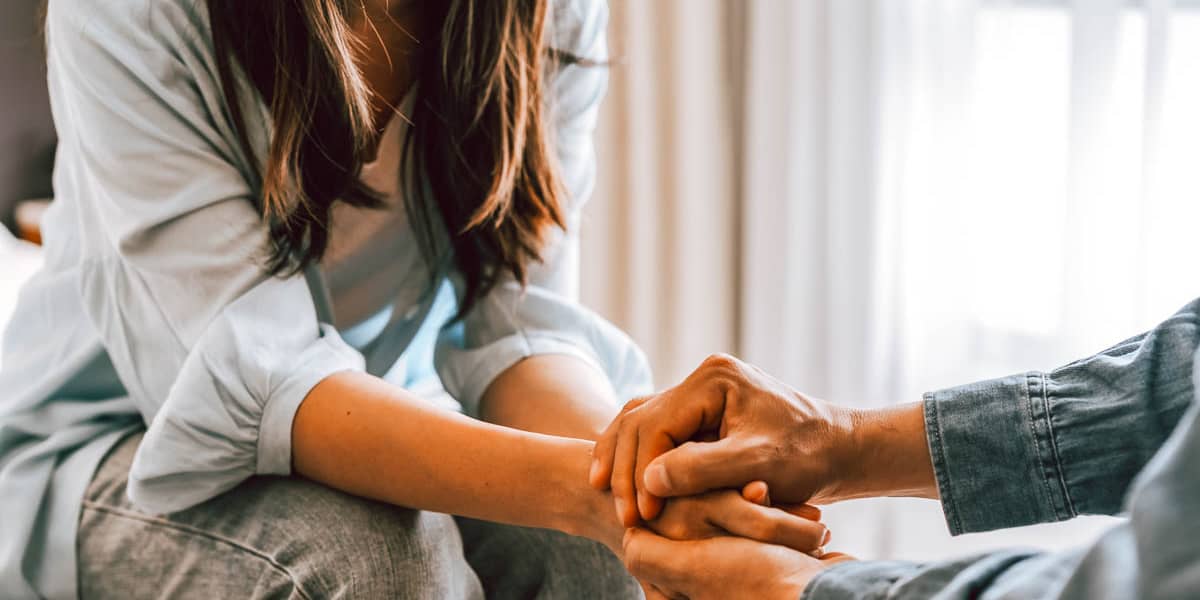Divorce after Catastrophic Loss and How to Cope

Couples divorce for myriad reasons – growing apart, infidelity, money struggles. But when a sudden or catastrophic loss pulls a married couple in different directions, it can be the most heartbreaking disconnect of all.
If you’re grieving a catastrophic tragedy, you and your partner may have become isolated from each other, which can amplify your loss. Is it possible for you and your spouse find your way back to wellness and to each other in the midst of this type of loss?
Personal tragedy can impact your relationships
Loss and grief. They’re not only personally devastating, but they can also change the very nature of the relationships around you.
If you’re lucky, friends and family will rally around you during times of grief and mourning. But sometimes, they won’t know how to support you and may even back away.
The same can happen in a marriage. Everyone mourns, grieves, and deals with loss in their own way. Unfortunately, grieving partners can get lost in their own grief-fueled isolation and have nothing left in their emotional reserves to support each other.
Traumatic grief
There’s nothing simple or easy about grief in general, but traumatic grief can feel insurmountable. A sudden or unexpected loss can trigger a complicated, prolonged kind of soul-sucking grief that, if left unchecked, can lead to mental health challenges like prolonged grief disorder and PTSD.
What is a traumatic loss? Research defines it as the loss of a loved one due to a traumatizing event such as a suicide, homicide, serious accident, or loss connected with war, terror, or a national disaster.
The hallmarks of catastrophic losses are that they are:
- Unexpected
- Untimely
- Violent
- Often body-damaging
- Often caused by someone who intended to do harm
Survivors of a traumatic loss often believe their loved one’s death was not only unfair or preventable but that they needlessly suffered. Their grief can cause them to close down and withdraw from everyday life or become fearful for their own safety.
Friendships, family relationships, and marriages can become strained as survivors remove themselves from interactions that could provide support and healing.
Caring for yourself after tragedy
Have you experienced a significant loss of your own? It may have left you with feelings of unfathomable sadness and hollowness. You may feel angry, anxious, and depressed. Feelings of shame and guilt are sometimes also part of the package.
After this kind of loss, grief can feel messy, nonlinear, and overwhelming. Survivors of a catastrophic loss often feel a kind of survivor’s remorse, too. They feel guilty for being alive when their loved one isn’t.
What you feel is yours alone. Pulling out of it requires a large dose of self-care. Be kind to yourself, and feel what you need to feel. There is no right or wrong, and grief looks different for everyone.
How can you take care of yourself when it’s the last thing on your mind? Rest. Get out in nature. Focus on good memories. Honor the life of your loved one in your own unique way. Write your feelings down. Talk to someone, and accept support from others.
Healing takes time, so grant yourself the time it takes.
Caring for your marriage after tragedy
Even the strongest of marriages can’t always survive personal tragedy. Whether the traumatic event was the death of a child or other loved one, a disability or serious illness, or the tragedy of a war or a natural disaster, no rule book can guide you through this time.
Remember that your spouse is struggling, too. Each of you will deal with the loss in your own way. Giving each other space is essential. But while it may be tempting to isolate after a tragedy, this is also a time when you need each other most of all.
Remain emotionally connected. Spend time together, and listen to each other with openness, kindness, and honesty. Support each other without judgment or expectations, and commit to working through it together.
Find ways to memorialize what you lost, whether through shared memories or rituals. And if either or both of you are struggling, get support from a friend, mental health professional, or trusted clergy member who might be able to offer you some healing strategies or a fresh perspective.
When catastrophic loss leads to divorce
In the context of tragedy, a loss of connection isn’t necessarily a lack of love or effort. Rather, it’s a testament to the profound pain of the loss and how different people take different paths to healing.
A tragedy can cause a lot of painful and challenging emotions between spouses. And while some couples grow closer during a tragedy, others feel added strain, especially if the relationship already suffered from other pressures.
If you’re struggling with a catastrophic loss, you may not be able to keep your connection or work through your loss as an intact couple. Divorce may be the natural consequence if you can’t find your way back,
How to be your best when you’re at your worst
Unfortunately, life doesn’t pause, even in the middle of a personal tragedy. If you’re dealing with divorce on top of your grief, it can be difficult to navigate everything with a sense of calm and clarity.
- Try to remain amicable with your ex. You shared love as well as the pain of your loss. Neither of you deserves more pain.
- Be there to support the kids. They may also be struggling with their own adversities, including grief over the loss as well as anxious feelings about your divorce.
- It’s okay to step back from your work life in light of everything going on. Your employer should understand and allow you to take time for your mental health.
- Embrace the help of others. This isn’t the time to go it alone. Reach out to friends, a support group, or a psychiatrist or grief counselor to help you through this difficult time.
Divorce, especially after a catastrophic loss, isn’t a decision you come to lightly. Navigating these huge changes requires a tremendous amount of courage, resilience, and strength. Your healing and well-being are paramount. Your personal support is critical. At Hello Divorce, we are here for you with a community that can support you each step of the way. Let us help. Schedule a free 15-minute call to learn how.



